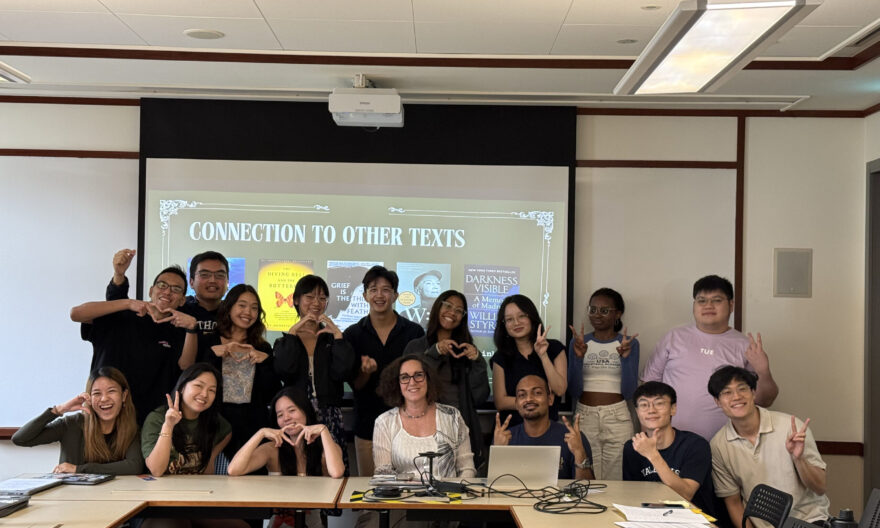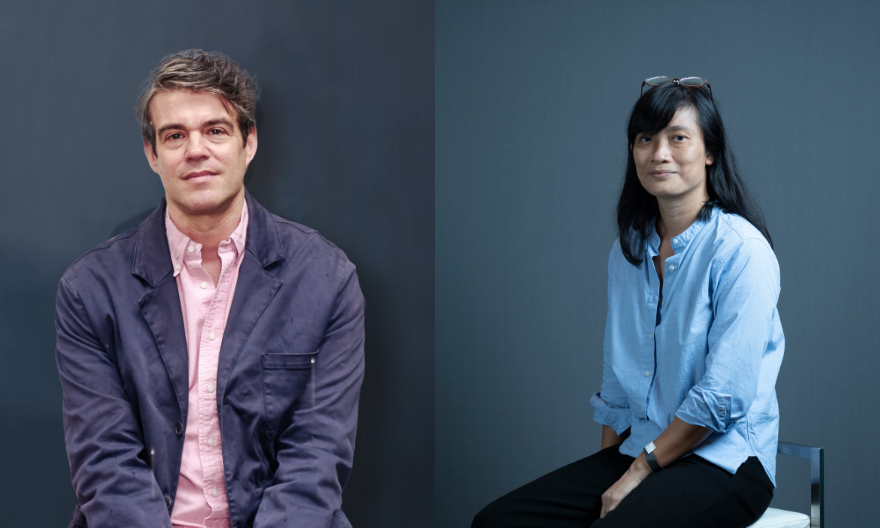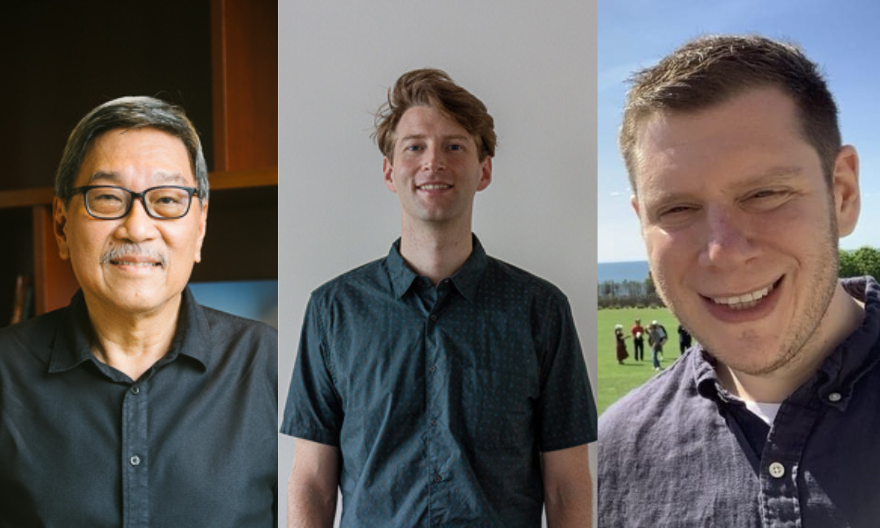Yale-NUS College welcomes over 20 new faculty who bring with them fresh module offerings
Providing a plethora of rich learning experiences for our students
With the start of the academic year, Yale-NUS College welcomed 23 new faculty members. Hailing from different backgrounds and disciplines, they offer unique educational experiences across a wide range of majors. Fresh modules to look forward to include Software Verification and Validation in Mathematics, Computational and Statistical Sciences (MCS), Formal Logic and Thomas Aquinas on Evil in Philosophy, Diplomacy and Statecraft in Global Affairs and Religion and the Environment in Environmental Studies amongst many others. Courses at the College are designed and taught by teams of academics across different disciplines to weave in common threads of inquiry, analysis and global perspectives throughout the curriculum. This approach helps shape students into culturally sensitive and socially aware thinkers. Among the 23 new faculty members, four are joining the College from the National University of Singapore (NUS), bringing with them strong expertise in undergraduate teaching and deepening cross-campus collaborations and networks.
Vice President (Academic Affairs) and Dean of Faculty David Post said, “We are excited to have over twenty new faculty members joining the College this academic year. They are teaching across all three divisions and in nearly all majors. They bring new energy and unique lived experiences that will enrich our curriculum and our campus culture.”
To find out more about some of the new modules, we speak to two new faculty members who are teaching new courses this semester. One of them is Lecturer of Social Sciences (International Relations) Dr Swapna Kona Nayudu, who is teaching the module Diplomacy and Statecraft under the Global Affairs major this semester.
 Photo of Lecturer of Social Sciences (International Relations) Swapna Kona Nayudu. Image provided by Dr Kona Nayudu for Yale-NUS College.
Photo of Lecturer of Social Sciences (International Relations) Swapna Kona Nayudu. Image provided by Dr Kona Nayudu for Yale-NUS College.
Dr Kona Nayudu took her PhD in War Studies at King’s College London, University of London and is currently writing a book on the international history of India’s international relations in the Nehru period. Dr Kona Nayudu is also an Associate at Harvard University Asia Center and Associate at Asia Research Institute, National University of Singapore.
Diplomacy and Statecraft seeks to engage students on the global history of diplomacy, unpacking how different historical contexts have influenced the development of diplomacy in different national and institutional settings. Dr Kona Nayudu elaborated, “Diplomacy is a nebulous concept that has a large degree of overlap with International Relations, Political Science, War Studies, and Sociology, so it is exciting to treat it as a discipline in its own right. I hope that as we get on with the semester, we can incrementally and cumulatively get closer to defining what diplomacy is.”
 Photo of Senior Lecturer of Social Sciences (Environmental Studies) Todd LeVasseur. Image provided by Dr LeVasseur for Yale-NUS College.
Photo of Senior Lecturer of Social Sciences (Environmental Studies) Todd LeVasseur. Image provided by Dr LeVasseur for Yale-NUS College.
In the Environmental Studies major, Religion and the Environment is a new module being offered by Senior Lecturer of Social Sciences (Environmental Studies) Todd LeVasseur. Dr LeVasseur’s work focuses on religion and nature, and he has taught various environmental humanities, environmental studies, and religious studies courses at The College of Charleston in Charleston, South Carolina, the United States of America.
The course seeks to analyse different religious worldviews past and present, with a focus on Asian religions and how they have been shaped by natural ecosystems and vice versa, and how the environment has been shaped by various religious worldviews. The course adopts an interdisciplinary lens, and engages with leading theoretical approaches in the academic study of religion and the environment.
Interdisciplinary learning is one of the cornerstones of the Yale-NUS liberal arts education model, where students are guided to synthesise diverse branches of inquiry to arrive at a higher-level of understanding about core issues impacting society. At the College, the Environmental Studies programme takes a uniquely interdisciplinary approach of focusing not just on the science and ecological aspects of climate change, but also the social sciences and the humanities. This is critical, Dr LeVasseur explained, because cultural values and worldviews are a critical factor in how humans impact the environment and will inform the way that our societies respond to the climate crisis.
When asked what takeaways he hopes students will leave with at the end of the semester, Dr LeVasseur said, “I hope to create a space of concern to discuss the state of climate change that we are presently facing, which is one of urgency and precarity. Through this I hope to empower students to grapple with that concern, but also feel some sense of calling. I hope their time in the class may feed into, however small, discerning how they will be able to give back to life, to their communities, to the environment.”
Both of them speak enthusiastically about their time here thus far, with one key highlight being able to interact and learn alongside Yale-NUS students.
Dr Kona Nayudu shared, “The students here are a real delight. They possess a nuanced sensibility I’ve not seen on most campuses. I have enjoyed making their acquaintance in the last couple of weeks and I daresay they constantly surprise me with their intellect and their engagement with the curriculum, naturally, but also with the wider world.”
Hailing from different parts of the world, Yale-NUS students represent different national identities. And beyond that, they are also “global citizens” who are often able to “pull in transnational perspectives”, which Dr Kona Nayudu believes to be reflective of the aspirations of the field of Diplomatic Studies.
Dr LeVasseur is also most excited by the opportunity to be “challenged to become a better teacher and human by [his] students”, as well as “co-creating an empowering and engaging learning environment” that allows everyone to become better people.
Dr LeVasseur added, “I am excited to be part of this amazing community for its final three years. I love the chatter I hear of students throughout the day, as we’re all in residency together. It’s fun and exhilarating; and a touch nostalgic even, as I get older. Every now and then, though, I wish someone would blast some music out their windows for a dance party in the common yards.”




